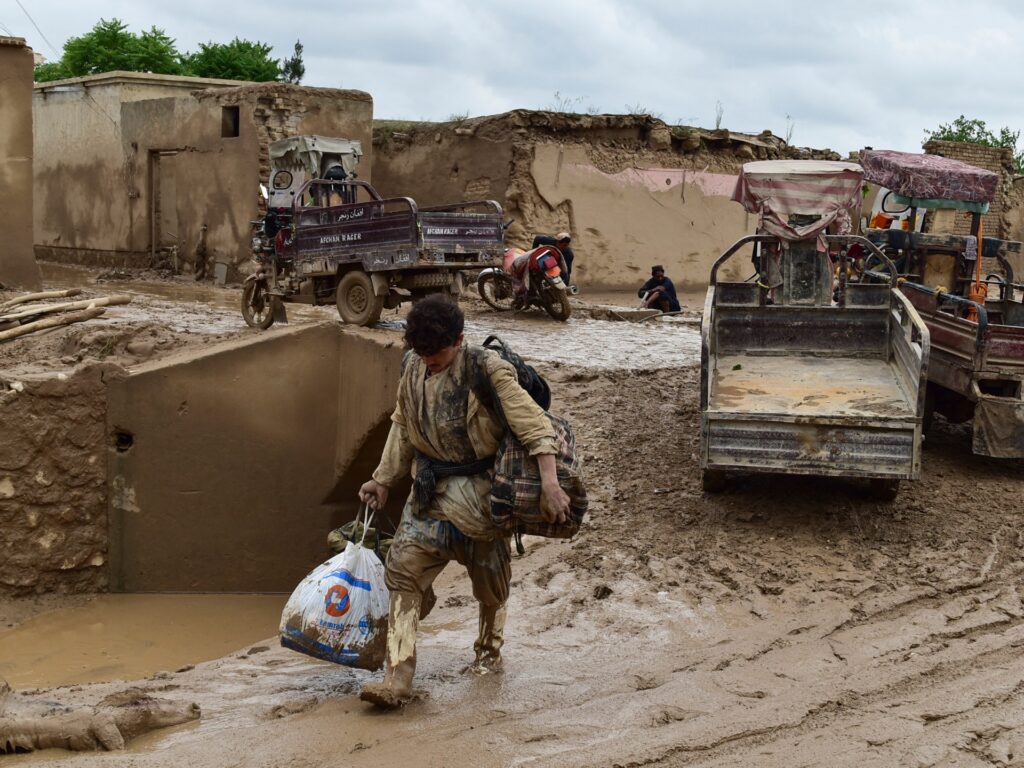Many others remain missing, and authorities are rushing to rescue the injured.
According to the United Nations' World Food Program (WFP), more than 300 people have died in Afghanistan after heavy rains caused flash floods.
The death toll was announced on Saturday, with many more missing and authorities rushing to rescue the injured.
The death toll is rising rapidly, with the Taliban's interior ministry announcing earlier in the day that around 150 people had died in the floods.

According to Reuters, ministry spokesperson Abdul Mateen Qaani said the number of injured was 138 in three provinces.
The worst-hit province was Baghlan province, where more than 1,000 homes were destroyed, according to WFP.
🔴Breaking news: Damage caused by flash floods #Afghanistanmore than 300 people were killed and more than 1,000 homes were destroyed in Baghlan.
This is one of many floods over the past few weeks due to unusually heavy rains. WFP is currently distributing fortified biscuits to survivors. pic.twitter.com/X4AaBW5TIC
— WFP Afghanistan (@WFP_Afghanistan) May 11, 2024
WFP has announced that it is distributing fortified biscuits to survivors of one of the many floods that have hit the country in the past few weeks.
Heavy rains on Friday caused flooding in several parts of the country.
Zabihullah Mujahid, the Taliban government's chief spokesperson, said in a social media post on Saturday that “hundreds of people have been killed and a significant number injured in these disastrous floods.”
Besides Baghlan, the northeastern provinces of Badakhshan, central Ghor, and western Herat were also heavily damaged, he wrote in X, adding that the “widespread destruction” had resulted in “significant economic losses.”
More than 200 people have been killed and thousands of homes destroyed or damaged in Baghlan alone, the United Nations' International Organization for Migration (IOM) told AFP on Saturday.
The Taliban's Defense Ministry said on Saturday that its air force had begun evacuating people and transferred more than 100 wounded people to military hospitals, without saying which province they were from.
“Due to the issuance of the state of emergency declaration, [affected] “The Ministry of Defense has begun distributing food, medicine and first aid to those affected,” the statement said.
Hedayatullah Hamdard, head of Baghlan's natural disaster management department, earlier told AFP that the damage toll “will probably increase”, adding that light rain continued into the night in several districts of the province.
Residents were unprepared for the sudden rise in water due to heavy rains in recent days, he added.
Hamdard said emergency workers were “searching for possible victims under the mud and rubble, with the help of the military and police security forces.”
Authorities say around 100 people have been killed in flooding across 10 Afghan provinces since mid-April, with no region completely spared.
In this country, where 80 percent of the country's more than 40 million people depend on agriculture, farmland is under water.
Mohammad Akram Akbari, head of Badakhshan's natural disaster management department, said the mountainous region was experiencing “huge economic losses in several areas due to flooding.”
He said there was a risk of casualties in the Tishkan region, where floodwaters have blocked roads and cut off access to areas where about 20,000 people live.



